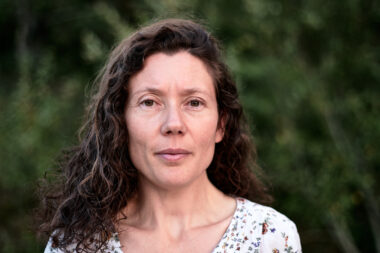Migrant and refugee women working in local councils are experiencing systemic barriers to career progression and gender equality, a new Monash University-led report has found.
The Victorian local councils and gender equality: Examining commitments to diversity & the experiences of women from migrant & refugee backgrounds report investigated how the pursuit of gender equality in Victoria considers the diversity of women’s needs and experiences.
The study has produced the first qualitative insights into the experiences of a specific cohort of migrant and refugee women in Victorian local councils, regarding workplace gender equality. It draws on the insights of 81 participants from six participating local councils in Victoria.
Co-authored by Dr Hyein Ellen Cho, lead researcher at the Monash Gender and Family Violence Prevention Centre, and Professor Marie Segrave, the report identifies critical issues regarding pathways to promotion in the workplace, with some participants feeling there was no opportunity for advancement or professional growth in their current workplaces.
Dr Cho said the findings affirm the need to pay specific attention to migrant and refugee women’s experiences.
“Little is known about the experiences of migrant and refugee women in relation to other forms of disadvantage or discrimination they may face based on their gender, ethnicity, race, or other attributes,” Dr Cho said.
“Furthermore, their views on gender equality policies and practices in the public sector remain largely undocumented. It is crucial to consider this cohort’s diversity of identity and circumstances while tailoring efforts to improve their workplace experiences.”
Among the findings was the need to create a safe workplace. Employee participants identified experiences of mistreatment and abuse but lacked a pathway to sharing these incidents. Particular concerns highlighted related to the prevalence of sexual harassment in the workplace and the limited number of employees who came forward about it.
The report also found there was little representation of cultural and language diversity within councils. Employees and management both noted there was often no consideration given to including migrant and refugee women in diversity working groups to share their experiences to inform policies and practices, or proactively including them in leadership.
Funded by the Victorian Government through a research grant from the Commission for Gender Equality in the Public Sector, the report recommends encouraging more migrant and refugee women to participate in the decision-making processes that affect their professional lives.
It also recommends prioritising working groups and committees to advance a workforce diversification agenda that includes migrant and refugee women, as well as proactively promoting council jobs targeting migrant and refugee communities.
The report also highlights the Commission for Gender Equality in the Public Sector’s opportunity to prioritise lived experiences of migrant and refugee women in the public sector to inform reviews, going beyond merely checking off minority groups as a survey or data requirement.
Public Sector Gender Equality Commissioner Dr Niki Vincent said data is vital to understand how migrant women experience gender inequality.
“In Victoria, we have the most comprehensive data set on gender equality in public sector workplaces in the country – but there are still gaps to be addressed.
“That’s why it’s so important we continue to build the evidence base about what works when it comes to gender equality through research projects such as this one,” Commissioner Vincent said.
The report will be launched today at a panel event featuring the report’s authors as well as the Public Sector Gender Equality Commissioner at The Skyroom, Collins Street and streamed online.
For media enquiries please contact:
Kim Loudon
Media and Communications Manager (Arts)
Monash University
T: +61 452 161 986
For more Monash media stories, visit our news and events site: https://www.monash.edu/news
For any other topics on which you may be seeking expert comment, please contact the Monash University Media Unit on +613 9903 4840 or [email protected]

